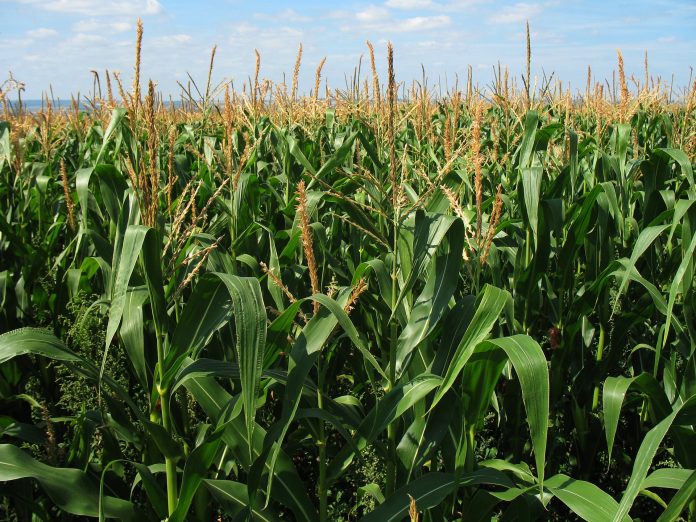By Gabriella Beaumont‐Smith
In December 2020, Mexico’s President Andres Manuel Lopez Obrador (AMLO), issued a decree banning genetically modified (GM) corn for human consumption. Mexico is the US’s third top trading partner for agricultural products and the number two export market for US corn. The ban poses concern for many American corn farmers because more than 90 percent of US corn is genetically modified.
The original decree was very vague and created uncertainty around the definition of “for human consumption.” In February 2023, AMLO modified the decree but the updated version does not clear up much.
The new decree explicitly states that GM corn for human consumption through “nixtamalization” (a traditional corn preparation process) or flour production for dough and tortillas is prohibited. However, it remains unclear whether GM corn used as animal feed and for industrial uses for human food would be affected by the ban. The use of GM corn for these purposes is not explicitly prohibited—the updated decree only states that GM corn used as animal feed and in products intended for human consumption should be gradually substituted.
Since Mexican law already requires permits for the use of GM corn, the decree states that the agencies administering permits for the release of GM corn seeds and GM corn for human consumption should revoke the permits and refrain from granting new ones. However, the decree provides no clarity or guarantee that permits provided for GM corn used as animal feed or for industrial uses for human food will not be revoked or granted in the future.
Although the decree is intended for the use of GM corn for tortillas, most tortillas are made with non‐transgenic white corn that is already primarily supplied by Mexican production. However, Mexican production cannot completely satisfy demand. Nonetheless, in June 2023, Mexico announced it would temporarily apply a 50% tariff on white corn imports, which was initially suspended last year to help ease inflationary pressures.
Complicating matters is that the GM corn ban and the application of these tariffs is likely illegal under the United States‐Mexico‐Canada Agreement (USMCA). The ban could violate the agriculture and sanitary and phytosanitary (SPS) chapters, while the tariffs could violate the national treatment and market access for goods chapter.
The agriculture chapter specifically lays out agricultural biotechnology provisions. These were not included in USMCA’s predecessor, the North American Free Trade Agreement (NAFTA), and likely added to the USMCA given the problems around agricultural biotechnology and trade with Mexico. Mexico has been inactive on food and feed products biotechnology applications since May 2018, and in 2019 ceased and rejected applications for genetically modified cotton seeds, citing the precautionary principle. This principle dictates that action should be taken before there is necessarily complete scientific proof of risk. In fact, the principle is codified in the USMCA and states provisional action can only be taken to mitigate risk to human, animal, or plant life or health when scientific proof of risk is insufficient.
Moreover, the trade agreement specifically includes provisions for standards that are “science‐based.” The Mexican government has not provided any scientific evidence that GM corn poses a risk to human, animal, or plant life or health, and it cannot legitimately argue that the scientific evidence about the safety of GM corn is insufficient. Mexico’s reasoning for the ban is to “reach self‐sufficiency and food sovereignty,” thus it is seemingly a pretext for a protectionist scheme to keep out US corn and prop up Mexican corn production.
Some even posit that Mexico’s actions against GM corn are a retaliation against the US government’s heavy subsidization of domestic corn production, particularly since Mexico eliminated most direct subsidies to its agriculture sector when it joined NAFTA.
The US and Mexico attempted formal consultations to resolve differences on the ban but the talks failed, so the US Trade Representative, Katherine Tai, announced the establishment of a dispute settlement panel under the USMCA, in August 2023. The decision from this third‐party panel remains to be seen. In the meantime, Mexican farmers, American farmers, other businesses, and consumers face uncertainty about how this decree affects their future, which undoubtedly will have consequences for US‐Mexico trade.
The longer that this matter goes unresolved, not only will Mexicans and Americans lose but the disruptions to North American trade will cost Canadians too. Bypassing important trade rules only serves to create turmoil while providing little (if any) new value for Mexicans.
Gabriella Beaumont‐Smith is a policy analyst at the Cato Institute’s Herbert A. Stiefel Center for Trade Policy Studies.
Originally published by the Cato Institute. Republished with permission under a Creative Commons Attribution-NonCommercial-ShareAlike 4.0 International License.
For more on genetically engineered organisms, click here.


























